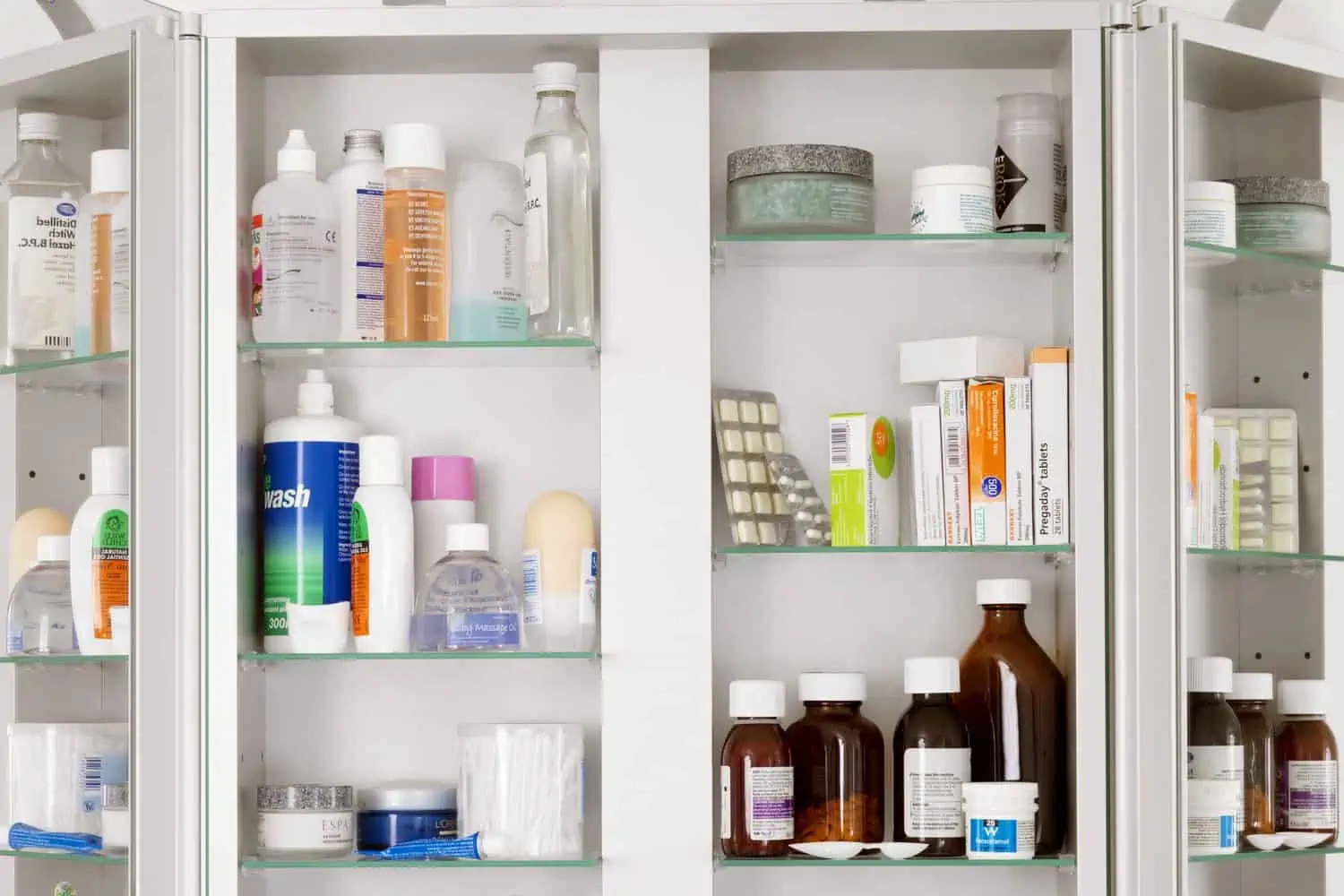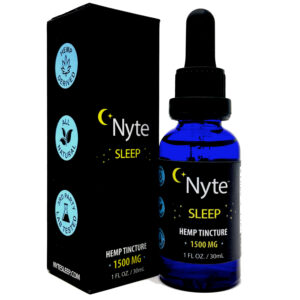Your Medicine Cabinet: What’s In It and What Should Actually Be In It
A lot of us are directly sabotaging our sleep without knowing it, based on our daily habits or the things that we routinely consume. One of the most common culprits behind sleeping troubles is what we have in our medicine cabinets. Before we talk about how your daily vitamins, supplements and medications may be influencing your sleep, let’s talk about sleep medications.
There is a Place for Sleep Medications
First off, we want to make something clear. At the end of the day, it’s rare that you need a medication for sleep. Yes, you read that right. Unfortunately, a lot of doctors prescribe sleep medications as a band-aid. Rather than go over with you all of the many reasons why you may be sleeping poorly, it’s much easier for them to write you a quick prescription for a sleep medication. This, unfortunately, can lead to developing a habit of popping pills, which is never actually addressing the real reason why you’re not sleeping well.
That being said, there is actually a time for sleep medications. This includes:
- Mental Health Disorders: Those with severe mental health disorders, such as schizophrenia, bipolar disorder and severe anxiety may benefit from sleeping medications
- Those Dealing with a Traumatic Event: When you’re recovering from a recent traumatic event, a sleep medication can actually be extremely helpful since the nervous system can struggle to relax on its own
- Those Who Just Received Bad News: Similarly, if you’ve recently received bad news, a sleep medication may be helpful to aid in falling asleep while you’re dealing with intense stress
- Breaking the Cycle of Insomnia: Sometimes, the self-perpetuating cycle of insomnia can be effectively broken by temporarily taking a sleeping medication
Most Common Sleep Prescription Medications
Now, let’s cover the most popular classes of sleep medications, starting with those that are prescribed by a doctor.
- Antidepressants: Antidepressants (SSRIs) are commonly prescribed since they’re safer to take in the long-term, but they’re really only useful for those who have underlying anxiety or depression which is causing poor sleep. And, they can come with a lot of side effects. Trazodone, a more common antidepressant, is known to cause sedation, dizziness, blurred vision, reduced blood pressure and weight gain. Taking this class of drugs requires a lot of caution, since combining them with alcohol is dangerous. Taking multiple antidepressants together can cause serotonin syndrome, which can be fatal, and lead to heart problems.
- Non-Benzodiazepines: Non-benzodiazepines, known as “Z drugs”, can cause sedation, and they can cause extreme drowsiness and a hangover-like effect the next day.
- Benzodiazepines: Benzodiazepines are popular anti-anxiety medications that include Valium and Xanax. They’re highly effective for sleep, but they’re also incredibly addictive, and withdrawing from them can be very dangerous. They are not meant to be used in the long term.
Most Common Over-the-Counter Medications
Then, there are over-the-counter sleep medications that you can find on the shelves of the local pharmacy. A lot of people believe that these are safe because they don’t require a prescription, but actually, that’s not the case, especially if you’re elderly. Popular OTC drugs like Benadryl lead to a fast-building tolerance, causing a person to take more and more of them each night to have the same effect, and this can be harmful, causing all kinds of health issues including cognitive decline. In fact, antihistamine abuse is associated with the onset of dementia.
At the very least, these drugs can cause a hangover effect the next day because they have a half life of 4-9 hours, and this can make a person wake up feeling drowsy and cognitively impaired. Besides that, some people experience a paradoxical effect with these drugs, where rather than feeling drowsy and sleepy, they feel jittery and stimulated. At the same time, most of these drugs are proven to only add about 20-25 minutes of sleep total.
Hidden Stimulants
We tend to overlook what’s in our medicine cabinet, despite the fact that many of us take various supplements and medications on a daily basis. After all, when was the last time you really read each ingredient in your pill bottles?
You may be surprised by just how many common pills contain what we call “hidden stimulants.” For instance, a lot of pain medications contain caffeine, and some antidepressants actually have a stimulant-like effect. It’s important to really read the ingredients that are in your medicine cabinet. Even many multivitamins contain unnecessary additives that have a stimulating effect. And, of course, diet pills and energy supplements can keep you awake for hours. Unfortunately, listing all of these “hidden stimulant” ingredients would be a waste of time because there are so many, with new ones being developed all the time. Also, take note that these pills rarely claim insomnia as a side effect, even if insomnia very commonly occurs when taking them.
Instead, we recommend making a list of everything you take regularly, including prescriptions, over-the-counter medications and supplements. Then, discuss these pills with your doctor or pharmacist, who can help you figure out whether or not they contain any sleep-sabotaging ingredients. The most common culprits for containing “hidden stimulants” include:
- Weight loss pills
- Headache and migraine medications
- Painkillers
- Antidepressants
- Tranquilizers
- Drugs for high blood pressure
- Cholesterol-lowering drugs
- Steroids
- Thyroid drugs
- Chemotherapy drugs
- Artificial energy foods and beverages
Now, that’s not to say that you should stop taking these drugs if they’ve been prescribed to you. Instead, talk to your doctor to see if your daily routine can be adjusted in a way that changes how they influence your sleep. It can be a matter of switching to an alternative form of the medication, or changing when you take it.
So, to summarize, let’s come up with a two-step action plan:
#1: Discuss and Review Your Medications and Supplements with Your Doctor
Talk to your doctor about every pill you take on a regular basis. They can help you figure out whether or not any of them are contributing to poor sleep, and help you come up with a new treatment plan.
#2: Review Your Medicine Cabinet and Count the Caffeine
Go through your medicine cabinet and find which medications contain caffeine. Count the number of milligrams total that you’re consuming each day, as this can play a big role in your sleep.
Reminder: Don’t forget to keep using that sleep tracker, to monitor your progress after making these changes along with taking on a nightly basis either a Nyte™ Sleep Tincture or Nyte™ Sleep Gummies.







